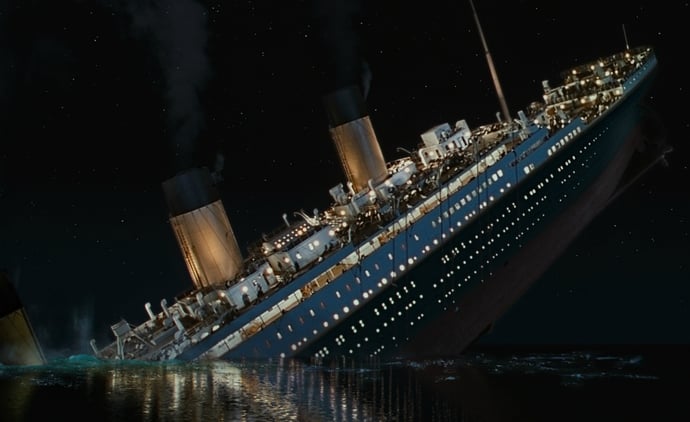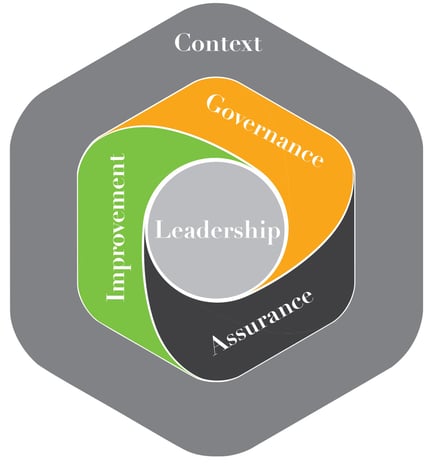Previously, I have written an article on the cost of Quality Management software. This is of course key information needed in any business case for a Quality System. But actually the main thing to understand about Quality is the cost of its failure.

Image from: althistoryinc.blogspot.com
Triaster have been very fortunate in having keynote speakers from the Chartered Quality Institute (CQI) contribute to a couple of our events: Simon Feary, Chief Executive, spoke at our World Quality Day event in November 2015 and Estelle Clark, Head of Profession, spoke at our workshop ‘Achieving Better Processes and Systemic Improvement’ held in April.
Quality failures
Simon Feary opened his presentation by talking about some of the failings in quality which made the headlines in 2015, for example:
- BP – Gulf of Mexico oil spill
- VW - car emissions fixing
- TalkTalk – data hack
and the disastrous effect that these have had on their reputations. It is the loss of reputation or damage to brand that has the most negative effect.
What is the cost of quality failure?
In February 2016, Reuters reported that, although ultimately it turned out that limited data was stolen from only about 157,000 TalkTalk customers (out of 4 million), the bad publicity caused a spike in lost customers. Reuters reported that this resulted in financial costs for TalkTalk of a one-off £40 to £45 million, and a £15 million impact on trading in the third quarter to end-December 2015. Reuters also estimated that there would be another £20 million hit from the reduced customer base in TalkTalk’s final quarter.
So the key cost of a quality failing is loss of reputation, the financial cost of which is enormous.
The Quality Professional
Oddly however, generally the quality professionals in most organisations are not seen as protectors of such a valuable asset and they are not usually given the status and resources to enable them to effectively do so.
Estelle Cark spoke about the response that the CQI got a few years ago when they asked senior managers what their quality staff did and what they expected of their quality staff. Estelle said that in summary the answer was: “They tell us what went wrong after the event.”
Given this view point, perhaps it is unsurprising that quality professionals find it difficult to get Board level support and backing for significant investment.
Both Simon and Estelle spoke about the CQI’s drive to reposition the quality professional, so that they are viewed as a core element in the drive to achieve the organisation’s business strategy and that they are viewed as protector of the organisations’ reputation.
The Competency Framework
The CQI are approaching this by recognising that many of the techniques currently used by quality professionals were established about 150 years ago and whilst they have been added to and tinkered with, they haven’t been significantly rethought in all that time. Until now.
The CQI have started again from scratch, to establish a new set of competencies and a training programme designed to put “Quality at the heart of every organisation.”
 © Chartered Quality Institute
© Chartered Quality Institute
Quality Management systems
At both events there was a lot of discussion, back at the office, about what this means in practical terms.
It was agreed that:
It means the approach to quality must be integrated into the whole business approach – so that both are driven by the business strategy.
It means that the Quality Management system must be a Business Process Management (BPM) system, which extends well beyond the quality department into a business wide platform.
It means that as standard any Quality Management system must deliver the capacity to:
- Enable the process owner (who does the job) to own and manage the quality of their processes
- Clearly show everyone, but particularly the leadership, who is responsible for the quality for each process and how this is achieved
- Support continual improvement
Putting this in place takes time and takes resources, both of which have a significant cost, but nothing like the cost of loss of reputation.
Get a Plan for Quality Failure
As you may know, Triaster offer three Business Management Systems which as standard align quality with business strategy.
We are aware that what we offer won’t suit every organisation, but if you don't have a Business Management System in place and you're concerned about the cost of quality failure in your organisation, then you should consider signing up for our webinar below to learn more about what we can do for you:
Related articles:
The Top 10 things your Quality Management System must deliver
Written by Emma Harris
Emma was Operations Director for Triaster for nearly 20 years, during which time as well as learning and perfecting her BPM and process improvement skills, she honed her inbound marketing expertise. She now runs D2e - Designed to engage - which designs and develops bespoke, engaging, HubSpot CMS websites, that help your entire company to grow and scale. She is delighted to still be delivering Triaster's marketing, whilst also helping other companies turn their websites into their hardest working asset.

